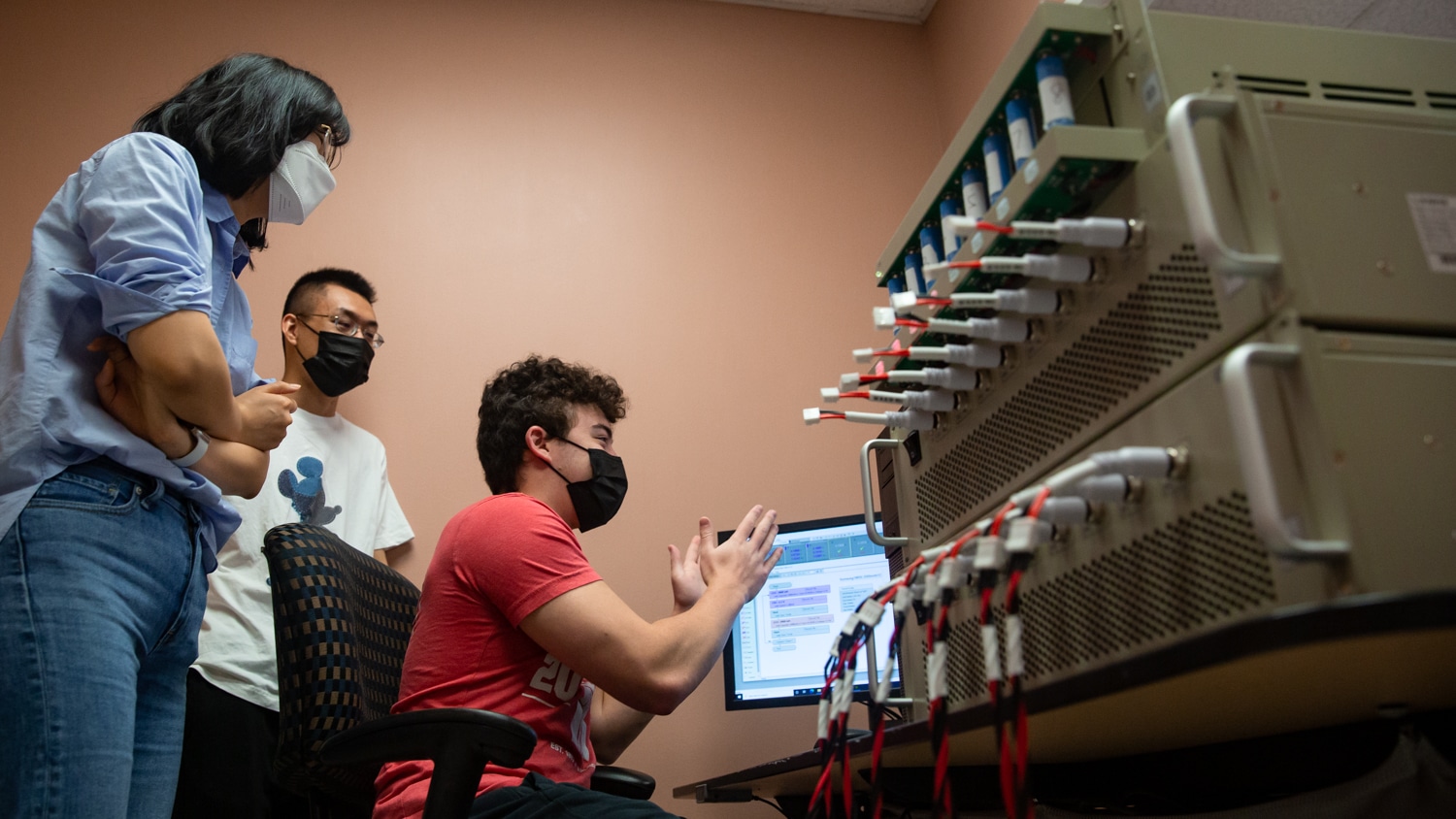Undergraduate Researches Clean Energy, Gains Hands-On Experience

By Mary Giuffrida
“Safety, reliability, sustainability and efficiency,” Assistant Professor Mengmeng Zhu says these are the goals of her team’s research.
Senior Aidan Lim spent his summer working towards these goals as a part of the Research Experience for Undergraduates (REU). Lim worked with Zhu’s team in their study of batteries, more specifically battery life and the degradation of that battery life over time.
Researching clean energy
With the advent of sustainability and clean energy as the driving force of technological advancement, batteries are everywhere. From electric vehicles to smart grids, they’re an integral part of the clean energy movement.
“Through our research, we build machine learning based models to predict the remaining useful life and reliability of the batteries based on the data collected in our lab,” Zhu explains. “The whole purpose is to make energy sustainable, and to make the battery usage sustainable and reliable.”
Zhu is the principal investigator of the study, working with textile technology management Ph.D. student, Rui Wang.
“We use historical data, like the usage and degradation data, to predict what will happen in the future,” Zhu says.
This is where Lim comes in. Over the summer he spent around 20 hours a week working in the lab.
“I look up research articles that pertain to our specific program, and I use it as a basis to model what we’re going to do,” Lim, who majors in textile engineering (TE), says. “I also spot weld and do some soldering to make battery packs.”
These battery packs act as the groups of multiple batteries found in industry applications, helping the results to be as applicable to the real world as possible. In fact, all the equipment, tools and processes Lim worked on are industry standard, giving him invaluable hands-on experience even as an undergraduate student.
“Aidan is really a great help,” Zhu says. “He helps my student, the Ph.D. student, to set up experiments, check all the settings and perform the testing in the lab everyday.”
Hands-on experience
Over the course of the REU, Lim developed new skills and practices that translated what he learned in the classroom into applicable, practical experience.
“I’ve always wanted to know how to solder because it’s a really valuable skill,” he says. “So that was really nice to pick up that skill as well as spot welding, because it’s a really unique skill that I now bring to the table.”
“Regardless of if he’s working for a company or he’s working in academia or he’s going to be a graduate student, this is going to be a great help because he has hands-on experience,” Zhu says.
Lim also had a chance to delve deeper into what aspects of textile engineering most interest him.
“It’s confirmed that I really like the hands-on stuff way more than background research,” he says. “It’s really nice to know now and confirm that.”
Helping each other
At the core of the REU is the desire to connect undergraduate students with research teams where they can help each other grow. Lim was able to bring invaluable help to Zhu and Wang, while also arming himself with powerful new experiences.
“I think it’s been really helpful this summer, having Aidan working here,” Wang says. “We work really well together.”
Next, Lim will apply these skills in research and lab work to his TE capstone experience, Senior Design.
- Categories: